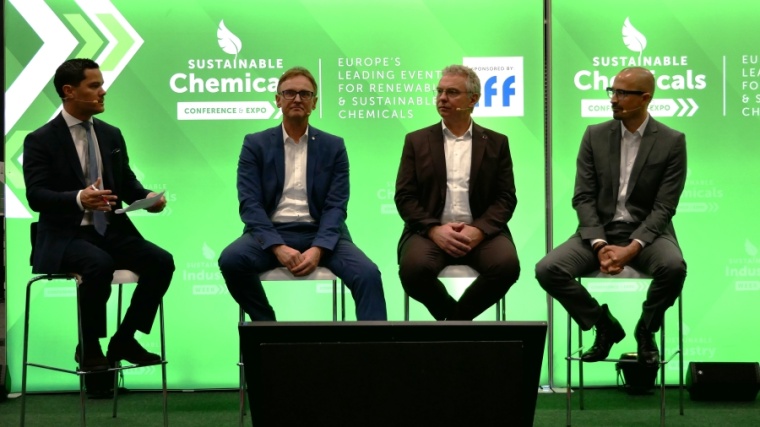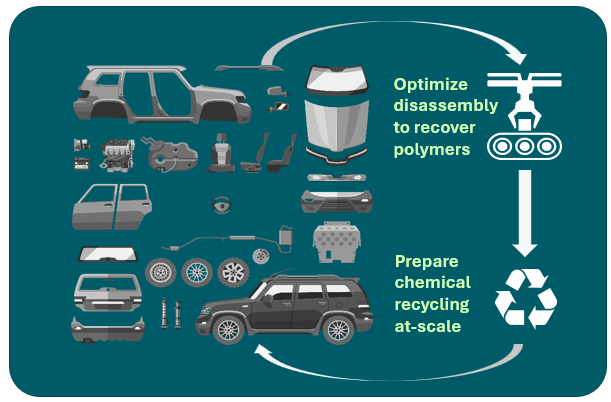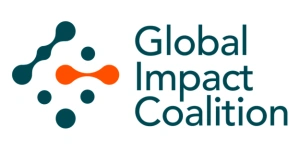Circular Solutions
The path to a sustainable, net-zero future for the chemical industry is paved with challenges – and also opportunities.
At the recent Sustainable Chemicals Expo & Conference in Cologne, leaders from BASF, LyondellBasell, Covestro, and the Global Impact Coalition discussed how collaboration among competitors can drive the sector toward circularity and reducing carbon emissions.

The panel, moderated by Charlie Tan, CEO of the Global Impact Coalition, emphasized the transformative potential of industry-wide cooperation, the role of innovation, and the systemic changes required to achieve lasting impact.
Four Challenges to Overcome
Matthias Scheibitz, Head of Sustainability Strategy at BASF Performance Materials, outlined four major challenges facing the chemical industry on its journey to net zero: investment, renewable energy, legal frameworks, and collaboration.
“The green transformation will not come for free,” said Scheibitz, highlighting the significant capital expenditure required for new technologies such as water electrolysis to produce CO2-free hydrogen, electrically heated steam cracking furnaces or industrial-scale heat pumps. “We also need renewable energy at competitive prices to decarbonize these technologies, particularly in Europe, where availability in sufficient quantities is a major issue.”
He emphasized the urgency of regulatory clarity, especially for chemical recycling and its acceptance as a contribution to recycled content quotas, which is critical to closing the loop on plastic waste. “Our customers won’t buy chemically recycled products unless there is certainty in the legal framework,” he noted.
Collaboration, Scheibitz added, is the fourth pillar for overcoming these barriers. “Companies trying to ‘close the loop’ alone will not scale. We need peers on every step of the value chain to work together to create sufficient sustainable material flows that enable competitive solutions.”
Collaboration across Competitors: a Balancing Act
The idea of working alongside competitors is not new, but in a sector driven by proprietary innovation, it remains complex. Erik Licht, Director of New Business Development APS EU at LyondellBasell, acknowledged the tension between competition and the shared urgency to address global challenges.
“There’s a big competitive part, but this is one of the most critical decades in human history. If we don’t act now, the burden on future generations will be immense,” Licht explained. “Collaboration allows us to scale solutions faster than any company could achieve alone.”
“Collaboration allows
us to scale solutions faster
than any company could achieve alone.”- Erik Licht, LyondellBasell
Peter Schwarz, Head of Sustainability Technologies EP at Covestro, echoed this sentiment: “Driving circularity is not something a single company can do — it’s a societal task. Collaboration across the entire value chain, from waste collection to sorting and recycling, is essential.”
Tan underscored the importance of moving beyond theoretical discussions: “We’ve had many conversations, but the focus now is on action. Success hinges on balancing the inherent competition among companies with the shared ambition of safeguarding our planet.”
“Our mission is to tackle what cannot be done by any single company alone,” Tan explained. “Through the Global Impact Coalition, we create the conditions for cross-sector collaboration, accelerating projects that integrate value chains and drive new business models.”

Scaling Innovation through the Global Impact Coalition
Founded by seven leading chemical companies within the framework of the World Economic Forum (WEF), the Global Impact Coalition (GIC) has grown globally and evolved into a powerful platform for transformative collaboration. Established in November 2023 as an independent entity, GIC unites industry leaders and stakeholders to address the pressing challenges of achieving net-zero emissions and promoting circularity within the chemical sector.
“The Global Impact Coalition
is not about reports and discussions.
It’s about tangible action.”- Charlie Tan, Global Impact Coalition
Charlie Tan, CEO of GIC, highlighted its mission: “The Global Impact Coalition is not about reports and discussions. It’s about tangible action — getting projects off the ground and moving them toward commercialization. Our mission is to create frameworks and partnerships that allow companies to develop and scale innovations that benefit the entire industry.”
At its core, GIC focuses on enabling cross-sector collaboration to tackle systemic barriers and unlock innovative solutions. Through regular executive-level engagement and a hands-on approach to project development, the platform ensures that ideas evolve into measurable outcomes. Key areas of focus include reducing carbon emissions, scaling-up alternative feedstocks, and the development of circular business models.
Transforming the Automotive Plastics Value Chain
The Automotive Plastics Circularity project is one example of this approach in action. This initiative brings together players across the automotive value chain — from dismantling and shredding to advanced chemical recycling — to recover and reuse the 200 kilograms of plastic found in an average car.
“Today, most automotive plastic waste is burned or landfilled,” said Schwarz. “By building a comprehensive value chain, we can create sustainable feedstocks for the chemical industry while reducing environmental impact.”
Considering the EU’s draft of the new End-of-Life Vehicle (ELV) Directive, which will require 25% of recycled plastic in new vehicles, and over 6% of “closed-loop” recycled plastic (plastic coming from ELVs), there is an urgent need to transform the automotive plastic value chain.
Licht added: “This project exemplifies the power of the Global Impact Coalition. By gathering all stakeholders around one table — chemical companies, recyclers, and automotive manufacturers — we can turn waste into valuable inputs and close the loop at scale.”
“With the Global Impact Coalition, we have the power to convene the entire value chain, from automotive manufacturers to waste management companies, around one table. Together, we identify shared priorities, align resources, and deliver solutions that no single company could achieve alone,” said Tan.
Beyond driving recycling rates in automotive plastics, GIC supports numerous other initiatives, such as looking at new routes to sustainable olefins, advancing research on direct conversion into C2+ monomers, and improving the standards and investment in pyrolysis as a viable chemical recycling solution. These projects not only advance technological innovation but also set a new standard for collaborative leadership in the chemical sector.

From Waste to Value
Transforming waste into a resource is central to achieving net zero. However, maintaining the quality of recycled materials remains a challenge.
“Waste is no longer waste; it’s a resource,” said Schwarz. “But achieving consistent quality requires innovation and engagement throughout the value chain.”
Scheibitz agreed, highlighting the need to partner with specialized waste collectors and sorters to ensure reliable feedstocks for large-scale chemical recycling. “Our expertise is chemistry, not waste management. Collaboration with value chain experts is essential for scaling sustainable solutions,” he noted.
Licht emphasized that the GIC’s efforts are grounded in action, not just dialogue. “We’re showing that these processes are possible. It’s about doing, learning, and scaling.”
The Path Forward
While the challenges are significant, the potential for impact is equally vast. The panelists expressed optimism about the industry’s ability to meet the challenges through collaboration, innovation, and shared purpose. Licht summed up the discussion: “To go far, we need to go together. Partnerships are not just beneficial — they’re essential.”
Scheibitz envisioned a future where collaboration yields competitive, sustainable products for customers, supported by integrated value chains and scalable innovation. Schwarz added that finding the right balance between competition and cooperation is key: “Sometimes, stepping back from competition for a greater goal is worth it — saving the planet.”
“Companies trying to ‘close the loop’ alone will not scale. We need peers on every step of the value chain to work together.”
- Matthias Scheibitz, BASF
Tan concluded with a call to action: “The chemical industry stands at a crossroads. By embracing collaboration, investing in innovation, and accelerating action, we can redefine what is possible — not just for our industry, but for the world.”
This panel at the Sustainable Chemicals Conference delivered a resounding message: the journey to net zero is a collective effort. By breaking barriers and fostering partnerships, the chemical industry has the opportunity to lead the transition to a sustainable future for generations to come.
Amanda Martin, Communications Lead, Global Impact Coalition,
Geneva, Switzerland




















